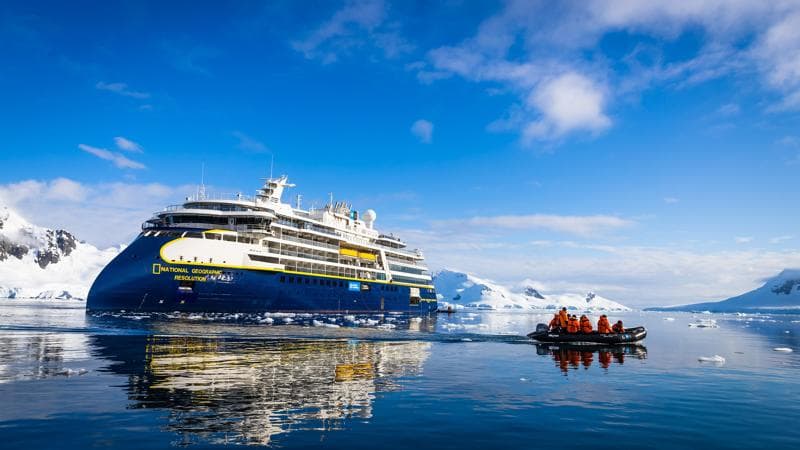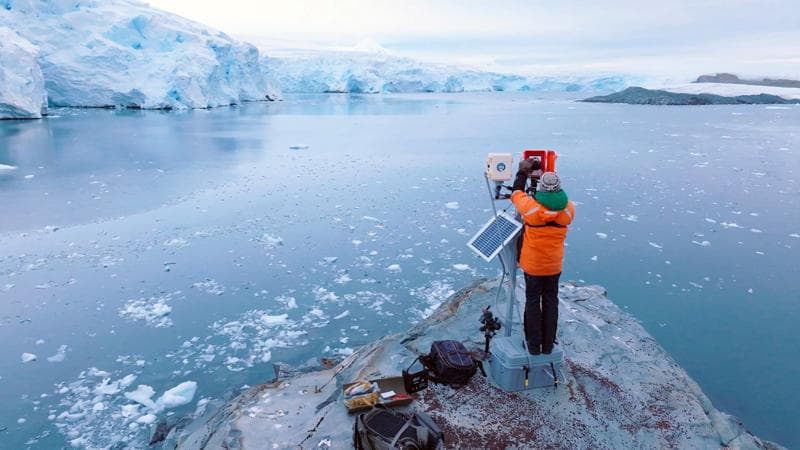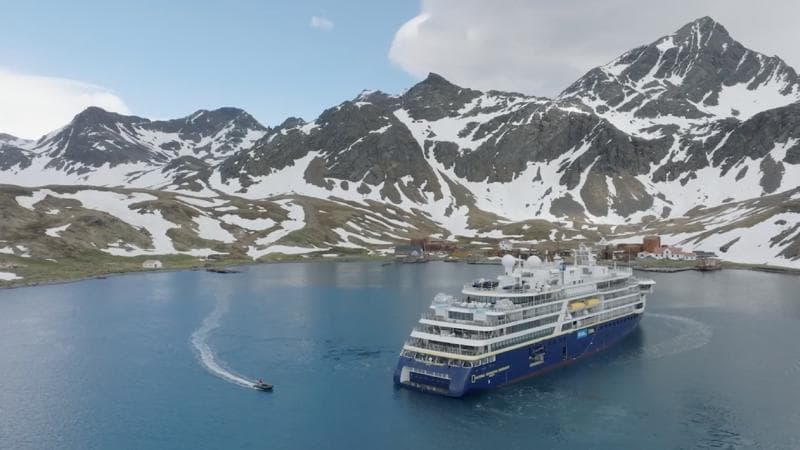A Sense of Place with Jennifer Kingsley: Disarming the Falkland Islands
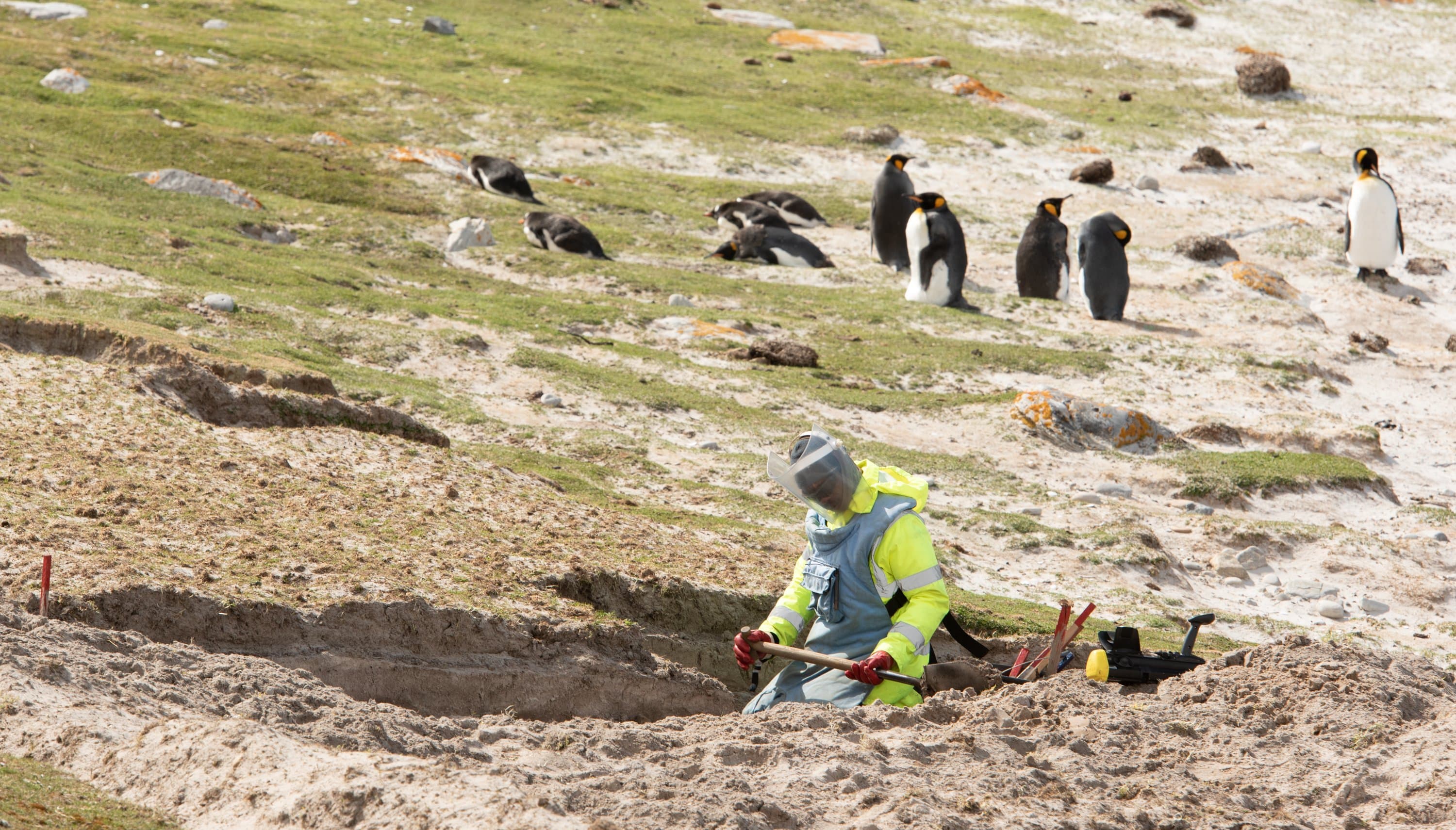
Jennifer Kingsley is a journalist and storyteller who specializes in personal stories from around the world. She is the Field Correspondent for Lindblad Expeditions, a National Geographic Explorer, and an award-winning author who also contributes to the New York Times and National Geographic. She is Canadian.
In this series, she offers perspectives on culture and history based on first-hand reporting experience.
Photography by Eric Guth.
Falkland Islands beaches—with their white sand and turquoise water—look almost tropical, but it’s cold in the South Atlantic, and there are penguins all over the place.
These islands sit about 300 miles off the coast of Argentina, and though they are officially a British Overseas Territory, Argentina also claims them. The complicated dispute dates back centuries, but on April 2, 1982, Argentine forces invaded these islands and began an armed conflict that vaulted this archipelago onto the global political scene.
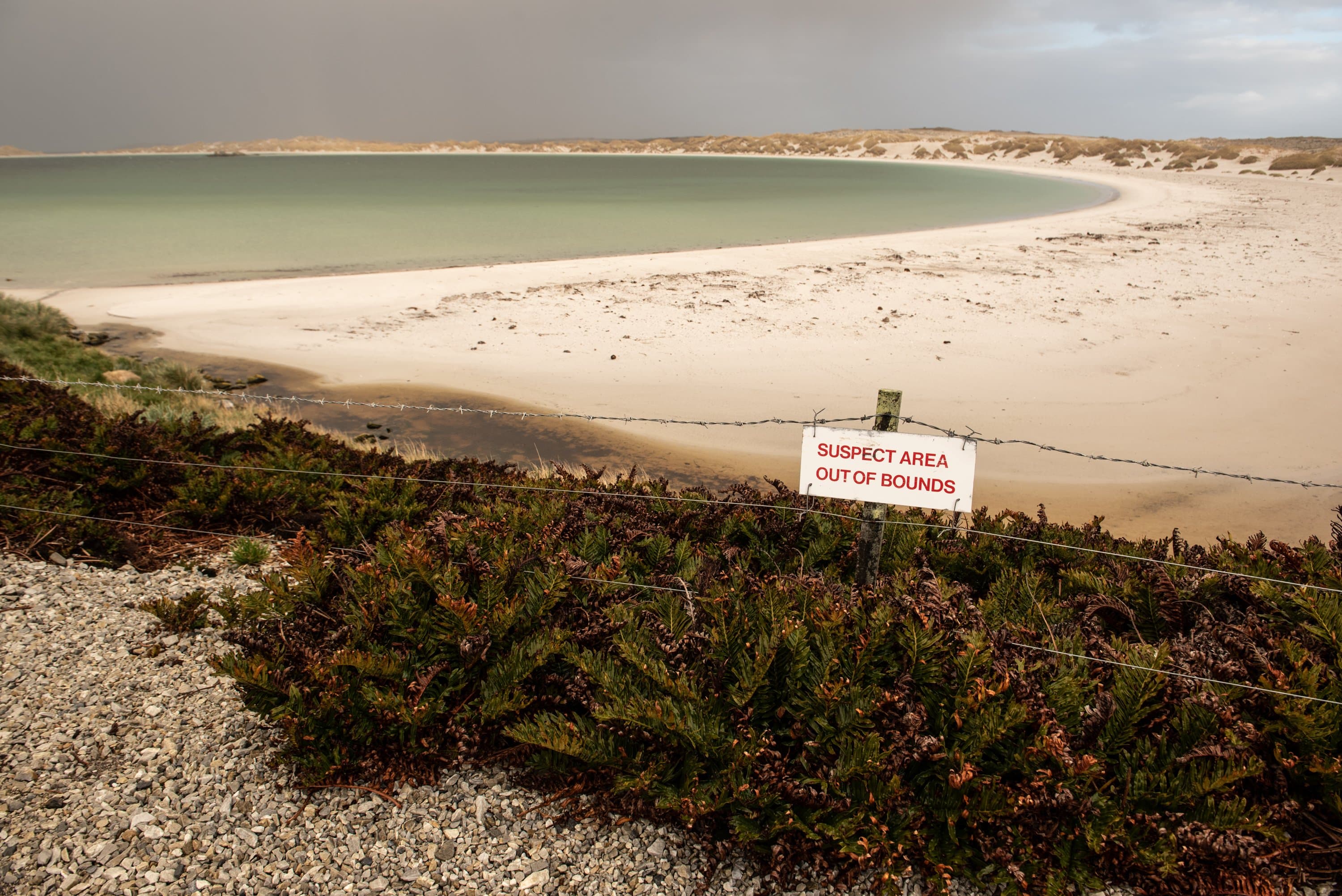
By the time Argentina surrendered on June 14, 1982, 900 people had died and 25,000 and mines had been laid. It would take 38 years to remove them. The enormous task was completed in 2020, thanks in large part to the Zimbabwean de-miners I traveled to the Falklands to meet.
When photographer Eric Guth and I arrived at the minefield, supervisor Kefias Shumba welcomed us with a smile and laid out the rules and safety protocols.
In many conflict zones, local people are trained to remove landmines, but that never happened in the Falklands as there's little unemployment, so that's where Zimbabwe comes in. A belt of landmines was laid along Zimbabwe's borders during its fight for independence in the 1970's when the country was known as Rhodesia. As a result, Zimbabwe developed highly skilled de-miners who have traveled to conflict zones all over the world.
On the minefields in the Falklands, men wear heavy blue aprons made of Kevlar andthick face shields which are NATO standard body armour. To visit their work sites, I donned the same gear. The wind pushed against my face shield, and my neck muscles cramped.
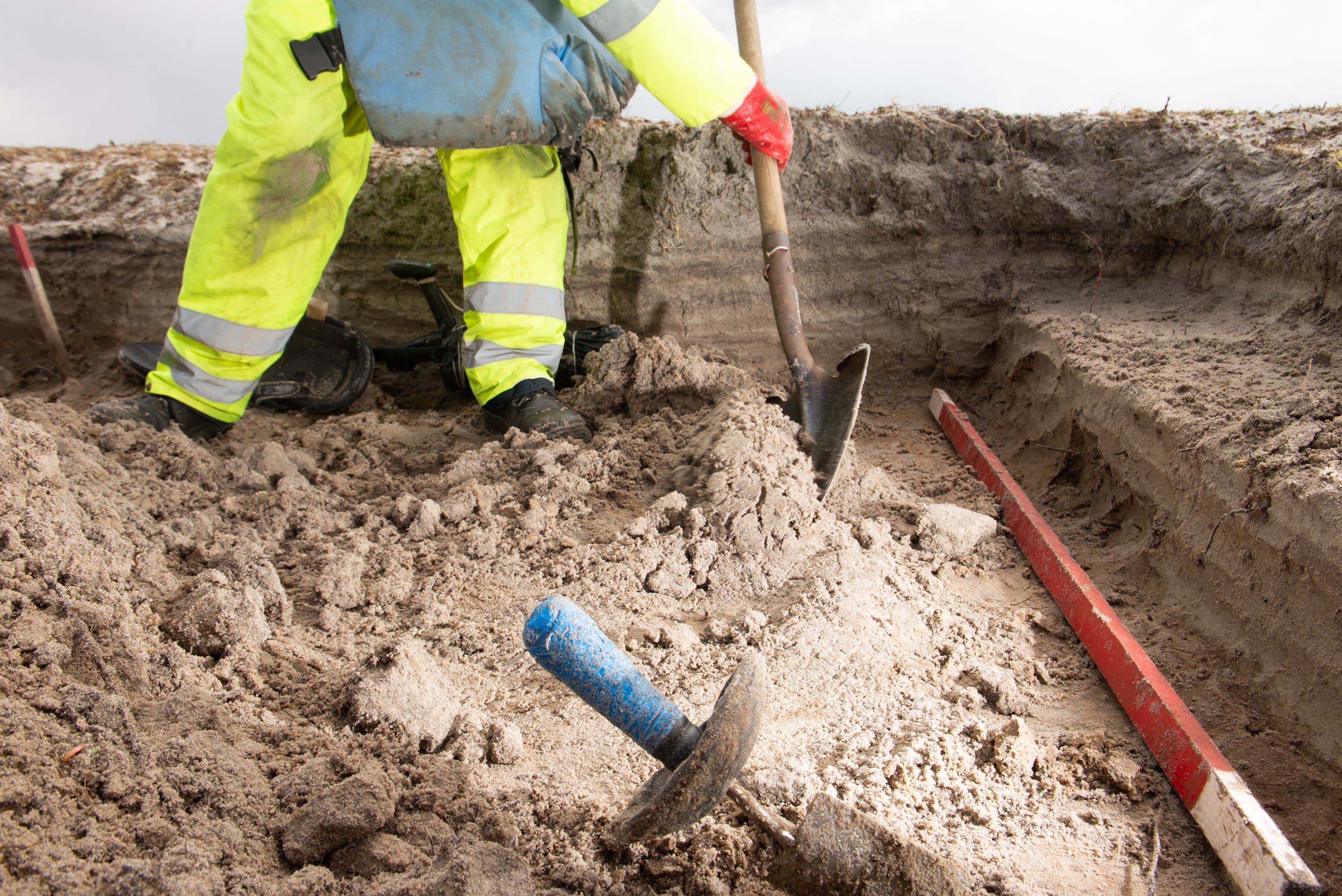
Shame Mapulanga led me down narrow safe zones to where the men were dug in, each in his own lane.
They carefully dug through the sand with the kind of hand trowel you might use in your garden. Manual de-mining requires skill and complete focus, but the setup is unbelievably simple: a shovel, pitchfork, metre stick, trowel and metal detector—like the ones vacationers use to find coins on the beach.
After the day in the minefields was done, we hung out at Miller's Guest House, where most of the men lived.
The guys played billiards and watched soccer on TV. We ate lamb chops and sadza, a Zimbabwean staple made from maize. This is what made the Falklands so different from other conflict zones. Life—in some ways—was kind of normal.
More than 80 percent of people in the Falkland Islands live in the town of Stanley. Its population is only about 2,000 but it has everything including schools, a hospital, government offices, grocery and hardware stores, and plenty of restaurants and shops largely supported by tourism.
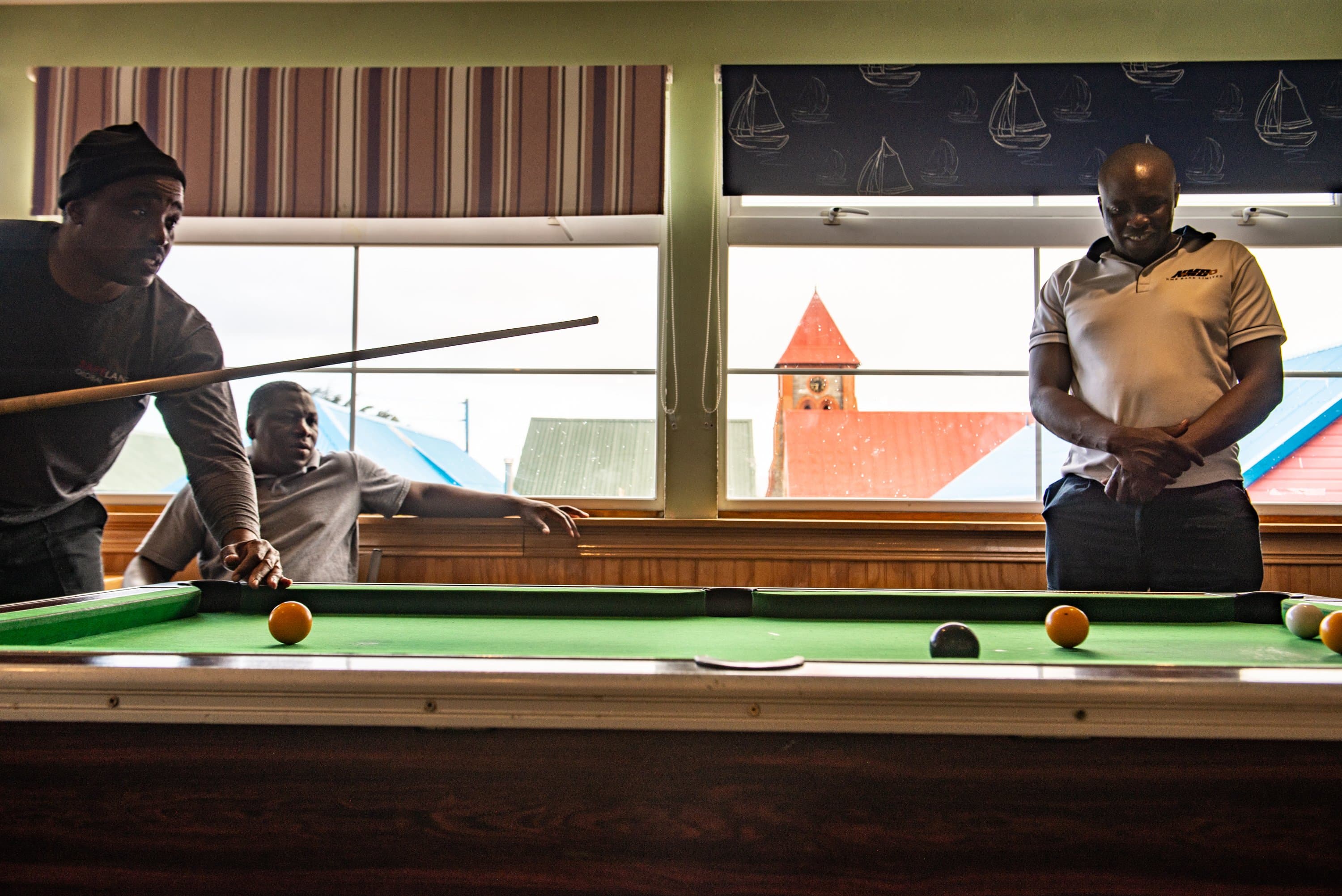
Today, thanks to this project, there are more and more Zimbabweans in the community, even though de-mining is complete.
Blessing Kachidza came as a survey engineer with the de-mining project. "Because of my color, because of my race, when people see me, the first thing that comes to their mind is de-mining. They think and rightly so—that de-miners are brave."
Now, he has a job with the Falkland Islands Company that has a hand in almost every industry from oil and gas to real estate and tourism. Kachidza already had a community here, beyond work, and that helped with the transition. He took us to the Zimbabwean Fellowship on Sunday morning during prayer, readings, and a sermon.
One side of the room was full of men, several of whom I recognized from the field. The other was reserved for women and children. Most had immigrated, but the youngest were born here. Some in attendance started as de-miners, others came to join family and friends.
The de-miners have an excellent reputation in the community, but this new life is far from simple. Still, the distinctly British feel of the Falklands is broadening. As you walk past red phone booths, you might hear singing in the Shona language. If you stop at the pub, the people at the next table might be speaking Ndebele.
These men, whether they stayed in the Falklands or not, have made the land itself safe to walk on. As supervisor Rodgers Mandava told me, "This is free land now.”
